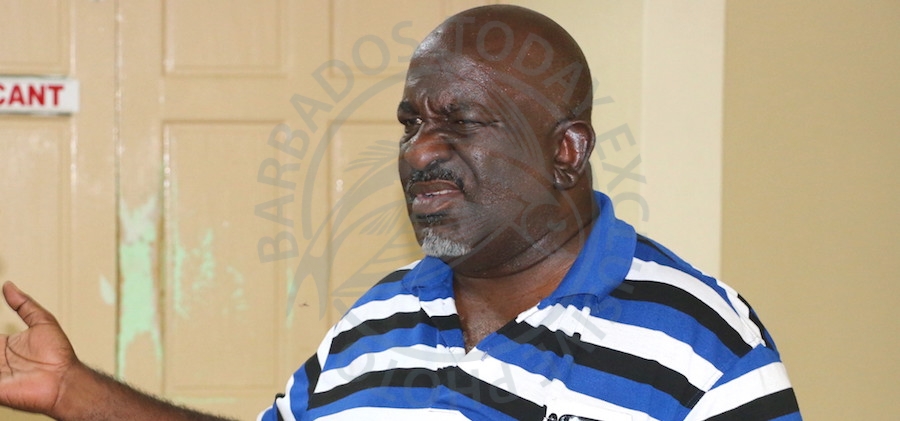President of the Association of Private Transport Operators, (APTO) Morris Lee has thrown his support behind the newly-formed PSV workers association, following claims by the latter, that owners had failed to act in their best interest.
Nevertheless, Lee described the formation of the new association as “perhaps the best thing that has happened to the Barbados Public Service vehicle industry in the last 25 years,” and that he was confident in the group’s ability to bridge the gap between transport authorities and the day-to-day challenges faced by the workers.
Lee told Barbados TODAY he fully agreed with the notion that some issues, particularly the behavior of some PSV operators were simply beyond the scope of owners and that workers would need to play their part in bringing the country’s transport system to an acceptable standard.
“I commend the workers for coming together and forming their own association and I believe that association is an asset to public transportation in Barbados and in no way a liability,” he said.
He added that although a distinction was now made between the two bodies, there remained many shared concerns, including the need for bus terminal structures at places like Speightstown and Oistins, the conditions at the River Terminal, the poor deportment of some operators, and the overall safety of passengers.
Lee added that dialogue with the Transport Authority was the first step toward improvement.
Ian Walcott a fellow committee member of APTO, however argued that while formation of the new association was commendable, greater interaction with high-level government officials would be necessary for meaningful progress to take place.
The PSV driver/owner told Barbados TODAY that contrary to what was being said by the new PSV workers’ association, APTO made numerous attempts to lobby for key changes in the interest of both owners and operators.
While Walcott refused to comment directly on whether he felt Tuesday’s dialogue between the newly formed PSV workers group and the Transport Authority would bear any fruit, he indicated a number of pressing issues could not be dealt with at that level. Instead, he said it required frank dialogue with officials at higher levels of government, who up to this point had not taken their concerns seriously.
“If you discuss bus fares at the transport authority, they will tell you, you will have to speak with the Ministry of Transport. They have no control over the increasing of bus fares. As it relates to concerns about fines, the Transport Authority will tell them they have to discuss that with the attorney general. So it doesn’t make sense going into the transport authority and discussing certain things. I’ve been there, I’ve done that and I know what they’re going to say,” argued Walcott.
Even after presenting a fresh slate of proposals last August during a meeting with Prime Minister Mia Mottley, Walcott said government had failed to take their concerns seriously.
“She [PM Mottley] said she was giving us a blank sheet for a proposal about what we think should be done with the industry to take it forward from our point of view, as the men in the business,” he said. In response, government asked that owners make every effort to clean up negative aspects of PSV subculture.
Owners suggested mandatory, random drug testing for PSV operators in response to complaints about excessive drinking and smoking by some drivers and conductors along with the removal of amplified equipment from the vans, to reduce loud music.
“That is something that we had recommended from when John Boyce was the minister [of Transport and Works]. So I’m talking about Boyce, Michael Lashley and now I’m talking about Dr. [William] Duguid.”
However after submitting their proposal and continuously trying to bring the new government to the table to have their own grievances addressed, he said owners received “no response”.
Walcott also stressed that APTO could neither perform the role of law enforcement nor demand that operators observe a certain code of conduct. In addition, he accused authorities of often failing to properly vet the people being granted permits.
“We [APTO] don’t have power to discipline anybody, but yet we are being penalized because of the behavior of others,” said Walcott.
“Government gives a permit to a man to operate a minibus or ZR. The government has no history, knowledge or background of these people. They don’t know their standards…there’s no training, no guidance and some people don’t know any better or just don’t care.”
Going forward, he said government would need to engage all stakeholders in a more meaningful way.
“Frank, candid dialogue, that is all that is required. Don’t talk to me just to say that you spoke to me.




